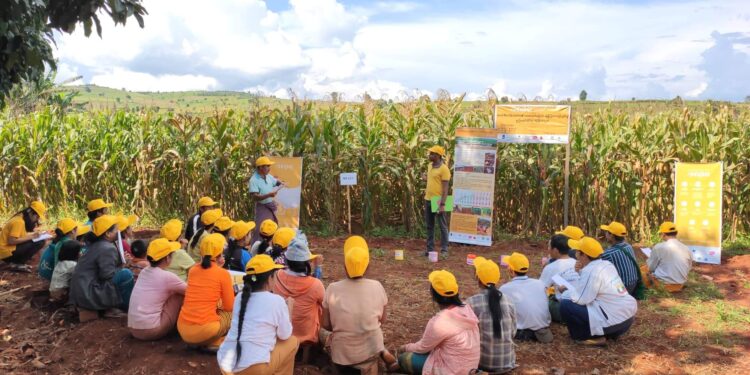
Closing webinar of SAPA:
Not the end, but the start of collaboration to improve the poultry sector in Myanmar
From 2015-2020, the SAPA (Sustainable and Affordable Poultry for All) project aimed at improving the corn and poultry sector for smallholder farmers in Myanmar through a public private partnership with Dutch, Belgium and Myanmar partners. One of the key problems the project addressed was the low productivity of corn and poultry production in Myanmar, caused by high mortality rates in broiler farming; lack of access to high quality Day-Old-Chickens; unstable input and sales prices; low productivity and yields in corn production; and lack of access to knowledge and extension services for smallholder farmers. By introducing more productive and sustainable farming practices, resulting in lower cost prices and productivity gains, the aim was to make poultry more affordable, and as the major source of animal protein in Myanmar, contribute to food security. The initiative consisted of an investment by private sector partners De Heus Animal Nutrition and Belgabroed and was co-funded by the Sustainable Entrepreneurship and Food Security Facility (FDOV) from the Netherlands Enterprise Agency of the Ministry of Foreign Affairs.
Key achievements
Achieving the projected results has not always been easy, given that a PPP project was a new concept in an emerging economy like Myanmar; where the education system was being revised; a foreign investment structure was still under development; and the project starting in a year when the first democratic elections since a long time were held with all changes that this brings about. Nevertheless, the SAPA partnership managed to establish:
- A state-of-the-art hatchery with an ultimate production capacity of 2,3 million Day-Old-Chickens per month;
- A parent stock farm with fourteen parent houses;
- Three Poultry Expertise and Training Centers on commercial farms in Mandalay, Nay Pyi Taw and Yangon;
- Two quality production standards in poultry and corn were developed based on regional standards but adapted to Myanmar’s reality;
- Over 600 broiler farmers and workers and 2500 corn farmers were trained to improve production practices;
- A Broiler Farmer Club was set-up;
- Further improvements were promoted through several National Poultry Dialogues and sales events where several value chain stakeholders came together to discuss overall sector challenges and opportunities.
Covering different steps in the value chain, the involvement of the different PPP partners was necessary to provide all required expertise to improve the productivity and sustainability along the chain, from corn production as feed up until the distribution of poultry to the consumer. Together, they brought in complementary strengths, skills and mandates: De Heus and Belgabroed as private sector partners have invested in a long-term business case for the hatchery; broiler expertise came from long-term experience of De Heus and knowledge institute Aeres; Yezin Agriculture University and consultancy firm Fresh Studio used applied corn knowledge to develop a corn standard; and the Myanmar Livestock Federation (MLF), as a sector association, brought stakeholders along the chain together to promote dialogues. Next to bringing in the required skills, the closing webinar also pointed at the necessity of having local partners involved who have an interest to sustain the results beyond the project.
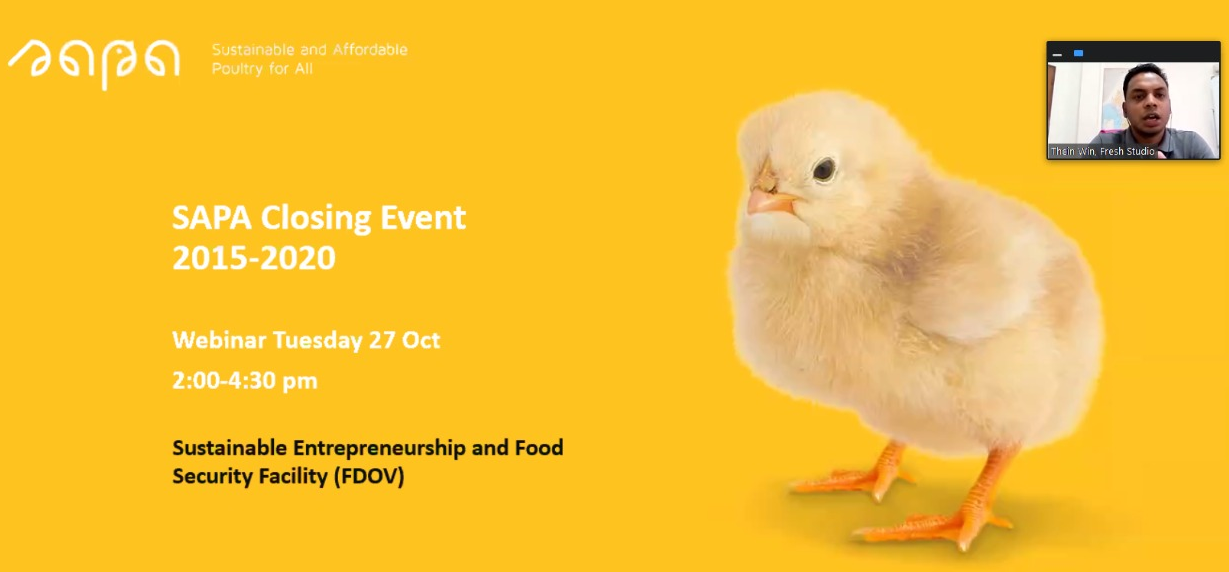
Involvement local partners for sustainability
Having both international and local, private and public parties with the appropriate mandates on board enables the project’s impact to sustain. This was the key focus of SAPA’s closing webinar; the project partners not only looked back at the results achieved, but mostly looked towards the future. How will some of the key issues that hampered the poultry and corn sector’s development, continue to be addressed? What are key lessons learned from the project that partners will take along in future work in these sectors?
After opening speeches by Frederik Heijink, agricultural counsellor of the Dutch Embassy, Dr. Mya Han, chairman of MLF, and a presentation of the project results by Country Manager of Fresh Studio Floortje Jacobs, this was the key topic of a panel discussion involving all project partners. ‘A key issue for smallholder farmers in poultry production is the highly fluctuating market prices,’ mentioned Arno Willemink, Managing Director of De Heus Myanmar, ‘The poultry price in Myanmar is sometimes 50% higher than in the Netherlands, for example. This can only be improved if we work along all steps of the value chain to work towards consistent quality. This start by access to affordable, high quality inputs (Day-Old-Chickens from the hatchery), improving production practices through quality standards and trainings of farmers, and preparing farmers for better markets. Recently, De Heus has also established a slaughterhouse and we are currently making buying arrangements with the SAPA trained farmers.’ But also other efforts do not stop with SAPA’s ending. ‘The vets that have been training the broiler farmers under SAPA, are employed by De Heus and will continue to provide trainings at the Poultry Expertise Centers.’
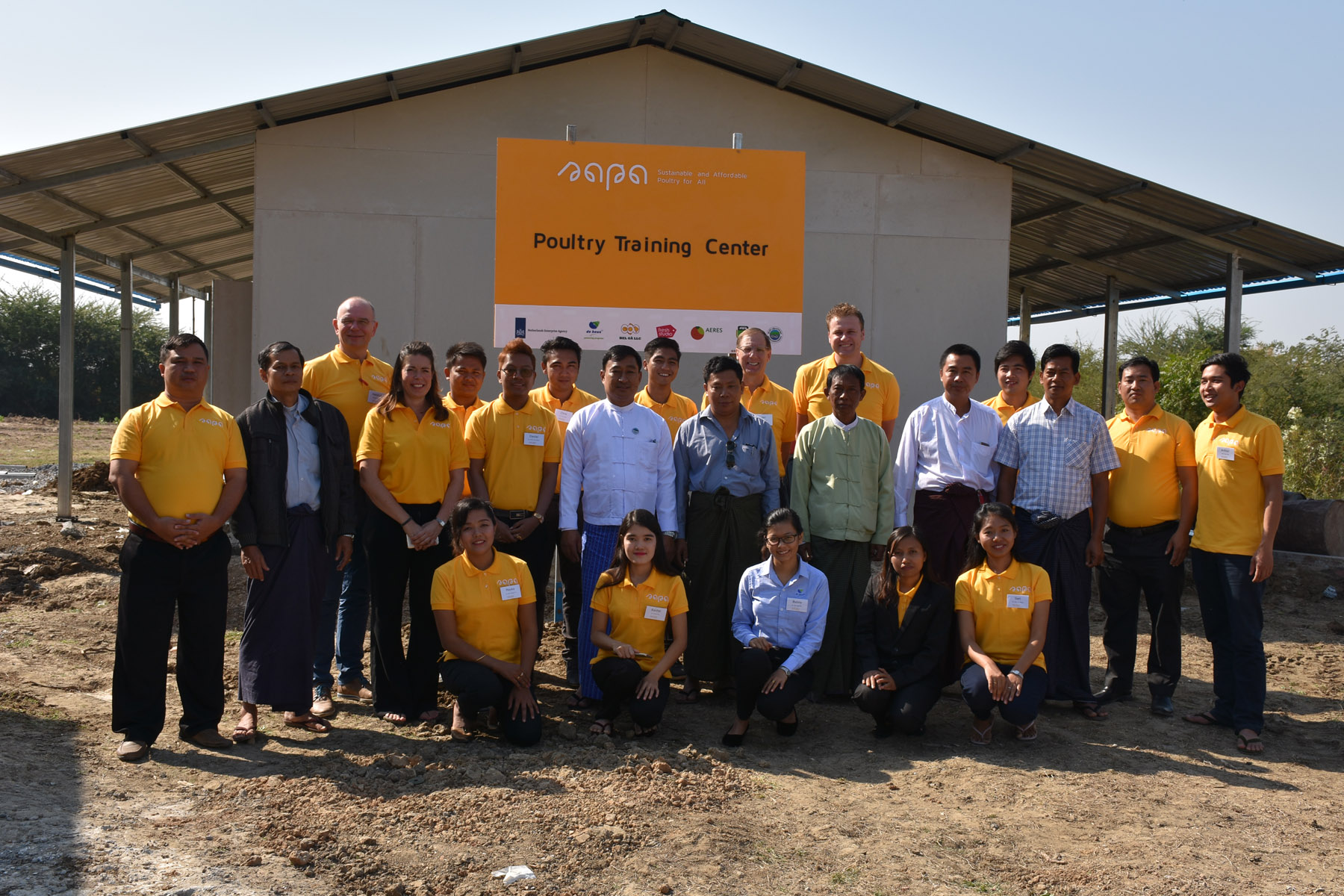
This price stability has become an increasing challenge since the economic downturn as a result of the Covid-19 crisis. ‘However, this is only temporary and we have to keep looking forward,’ says Ben Cliteur, Managing Director Belga Myanmar, ‘Besides, food safety has become more relevant than ever; consumers are increasingly focusing on safe, hygienic food production in this situation. The SAPA broiler production standard is an important first step.’ Dr. Kyaw Htin, vice-chairman of MLF, added: ‘The SAPA broiler production standard has helped in translating other standards, such as ASEAN’s Good Animal Husbandry Practices, to the reality of Myanmar. The SAPA guidelines are more appropriate for Myanmar’s farmers and can be implemented step-by-step. The same is valid for SAPA’s corn production standard; it has been developed with experts of Yezin Agricultural University and extensively tested on trial plots in Myanmar. By making sure the guidelines’ effectiveness and applicability for Myanmar farmers, many corn farmers managed to significantly improve their yields.’
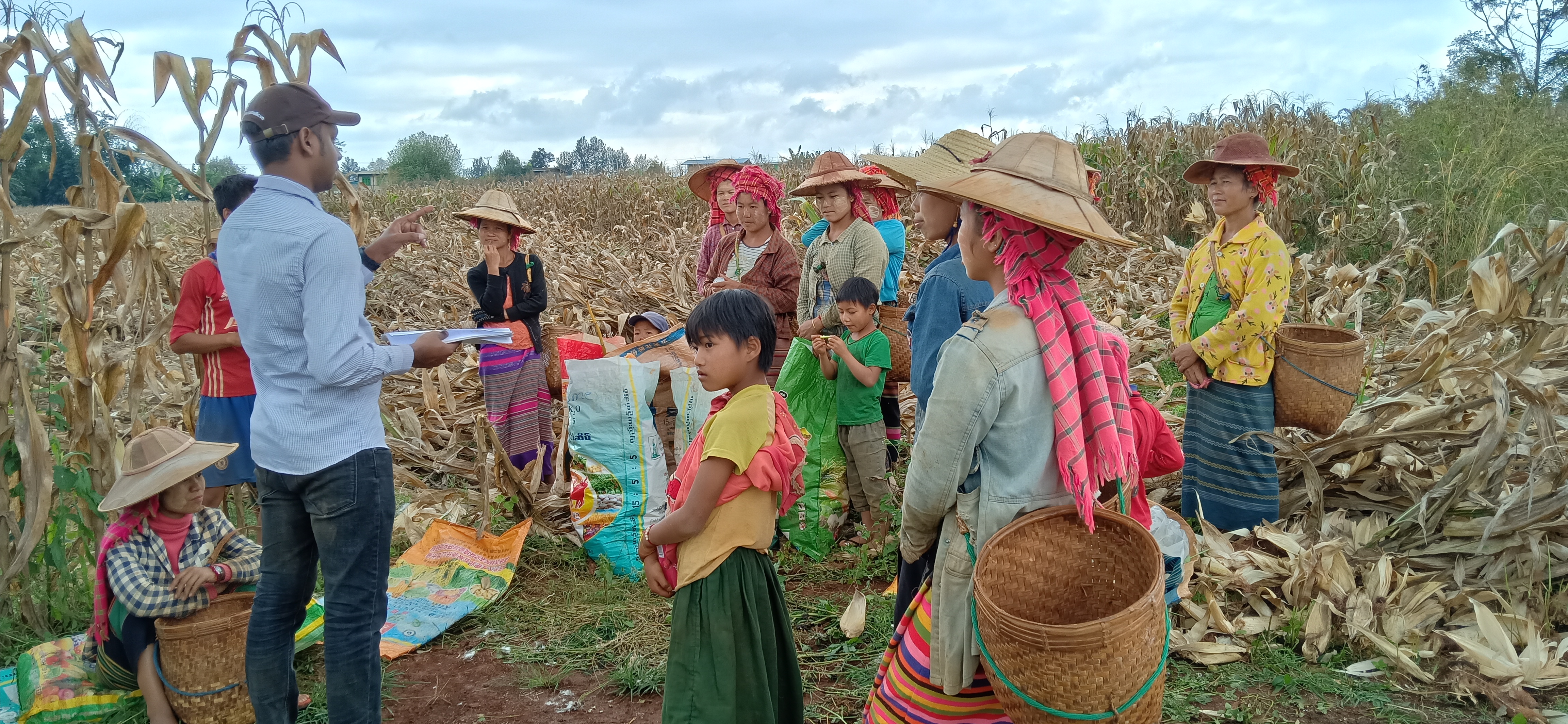
However, this does not mean that following SAPA’s standards is easy for all farmers, especially when it comes to broiler production. Instrumental for safe broiler production and ensuring biosecurity is that production takes place in closed farms. ‘Even though it eventually reduced the production costs for me, broiler production in closed housing requires investment,’ Dr. Kyaw Lwin mentioned, one of the SAPA certified farmers, ‘Preparing the building structure, training workers, but also applying record keeping and reducing antibiotics are part of the steps to be taken to achieve certification. But it is important to keep up with the market. In the current Covid-19 situation, consumers are increasingly demanding better food safety. I can now use my certificate to sell on online market platforms. I am also talking to De Heus to sell my SAPA chicken to their slaughterhouse. We are currently discussing future market opportunities.’
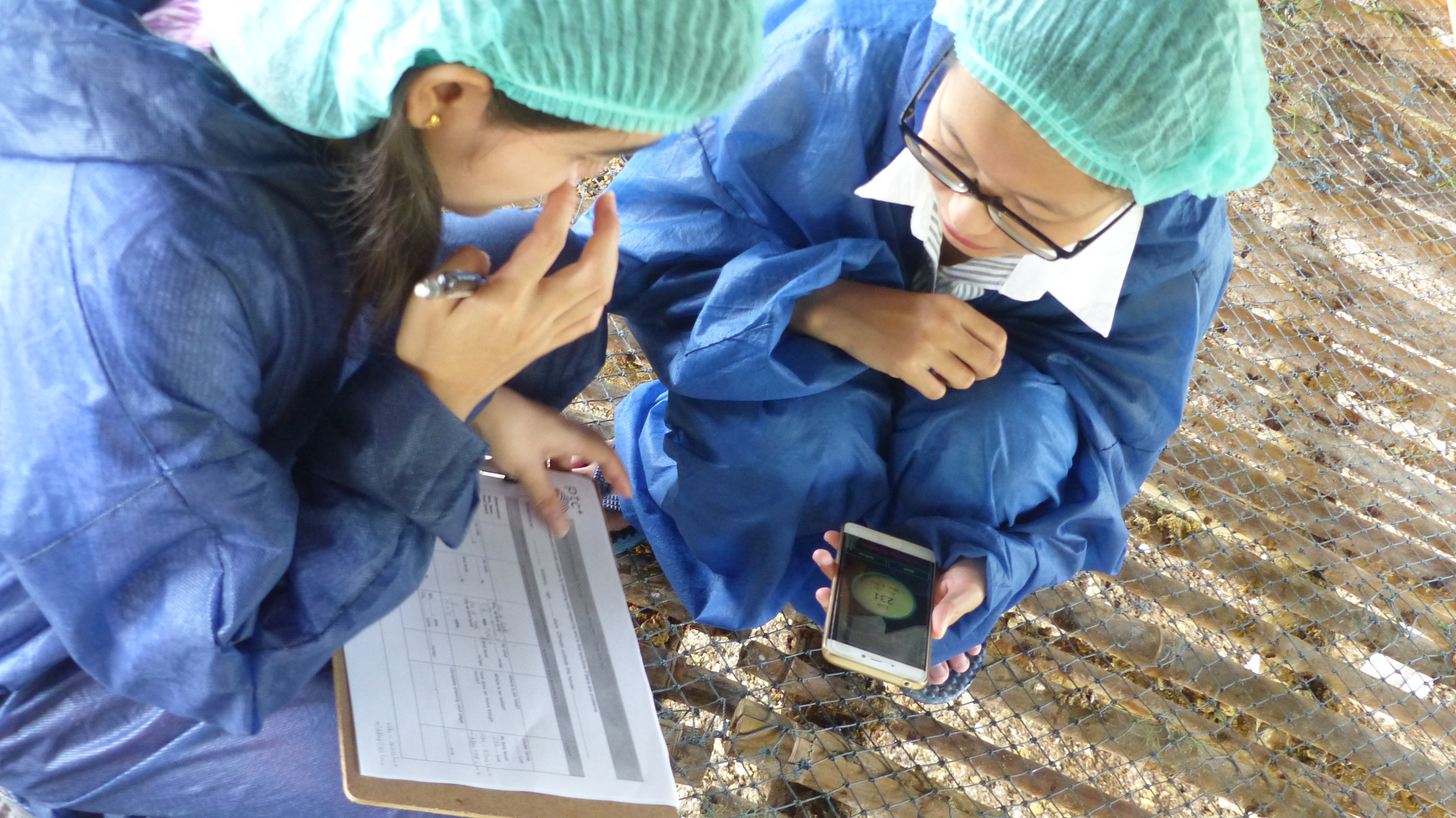
In the end, only three broiler farmers managed to get the SAPA certified within the project period. ‘Although biosecurity is key, the main issue for smallholder farmers is to transform to closed production systems. Investment is needed for this, but in Myanmar it is extremely difficult for farmers to get access to capital. Banks still require collateral in the form of land, but farmers often do not have land titles. These are policy issues that can only be solved in collaboration with the Myanmar government,’ said Ben Cliteur, Managing Director of Bel Ga Myanmar. ‘Therefore, our work does not stop here; ongoing collaboration between different stakeholders is key to continue SAPA’s success. Working in a PPP under SAPA has thought us essential lessons on how to collaborate in future.’
With that, the panelists of the closing webinar agreed: the PPP will not end with the closing of SAPA, it was rather a crucial start for collaboration. While SAPA officially ended in October, the partners will officially come together to discuss final lessons and the way forward during a roundtable in January.
